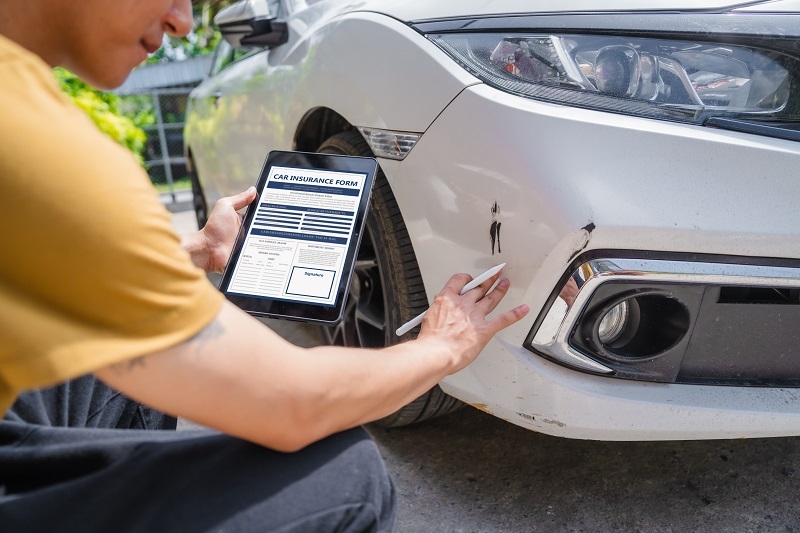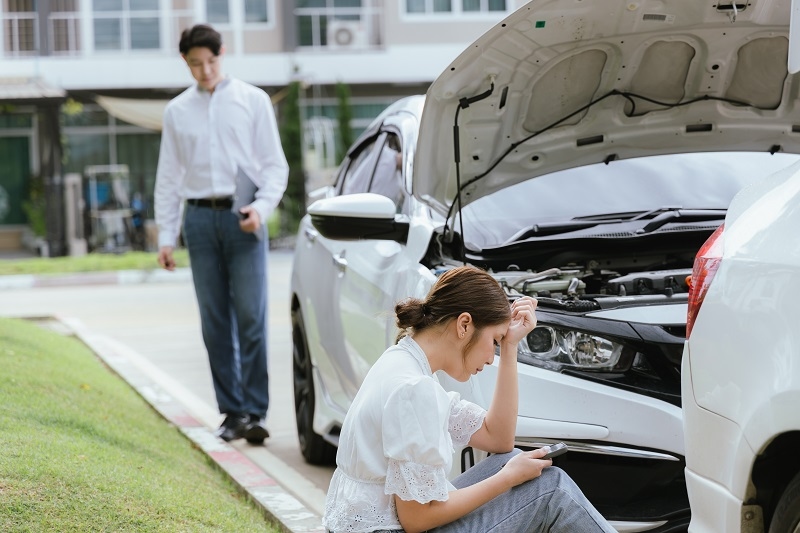
Buying car insurance can make you feel like you're covered for almost anything, but that's not quite how it works. Even the best plans have some blind spots. If you don't know what these are, you could be shocked. Learning about damage not covered is a good idea so you're not caught off guard with a rejected claim when you thought you were protected.
This post will show you things car insurance usually doesn’t cover, helping you be more prepared.
Let's get into the details of what car insurance typically doesn’t include:
If you intentionally damage your car, like out of anger, the insurance won’t cover it. And not if you are trying to commit insurance fraud.
Why? Insurance is there for accidents, not stuff you do on purpose. If they find out you intentionally damaged the car, they might cancel your policy and even take you to court.
Normal car insurance won’t pay for things like mechanical problems. So, if your engine dies or your brakes wear out, you’re on your own.
A lot of people think they're covered for this, but they aren't. Regular upkeep, like new tires or spark plugs, is also your job, unless you bought extra mechanical breakdown insurance or an extended warranty.
If you’re using your car for things like delivering food or doing ridesharing, your regular policy might not cover you.
This is a sneaky one that many people miss. Normal car insurance usually doesn’t cover business use. You’ll need a special commercial policy or a rideshare add-on to be protected when you’re working.
If you like racing or doing stunts, your insurance won’t cover you, even if it’s on a closed track. It’s seen as too risky.
Even if it’s just a friendly race, your insurance will be void if something happens.
Driving drunk is a big no-no. If you cause an accident and you’re drunk, the insurance company can reject your claim, even if you have full coverage.
Besides the claim being denied, you could face serious legal trouble. Almost all policies have this rule because it’s so risky.
Car insurance is usually only good in a specific area. If you take your car to another country without telling them or getting international coverage, you might not be covered if something happens.
For example, if your policy is only for America, and you drive to Canada without telling your insurer, any accident might mean that you're not covered.
If someone who isn’t on your policy or doesn’t have a license drives your car and crashes it, you might not get coverage. Insurance companies want everyone driving to be authorized and licensed.
Even letting a friend borrow your car could backfire if they’re not old enough or allowed to drive.
It’s rare, but most policies don’t cover damage from war, terrorism, or nuclear events. These are too unpredictable and big for insurance companies to cover.
These are strange exclusions that are usually buried somewhere in the policy paperwork.
If your insurance is out of date, even by just one day, your insurance won't pay if you have an accident. Also, if you have insurance for your car, but you get into an accident while driving a friend's car, your insurance won't pay.
Make sure your insurance is always up to date.
If someone breaks into your car and steals your laptop or phone, your car insurance probably won't pay for it. Auto insurance typically does not cover personal belongings stolen from your vehicle.
However, your homeowner's or tenant's policy might cover it.

This is where one thing leads to another. You drive away from an accident where you damaged your oil tank, and then your engine stops working. The insurance company may decide to assign fault for the engine damage to you because you continued to drive when you should not have.
These hidden clauses can be complicated and lead to your insurance claim being denied.
Lots of car owners add stuff to their cars, like new wheels or engines. If you don't tell your insurance company about these changes, they might not pay if something happens.
If you have an accident, the insurance company might not pay for the damaged parts or might deny your claim completely.
If you drive through a flooded area and it damages your engine, the insurance company might not pay, specially if they warned you not to drive there.
Some accident insurance limits cover natural disasters, but they might not pay if they think you were careless.
If you use your car to commit a crime, like drug dealing or robbery, the insurance company won't pay for any damages.
Even if you didn't know you were doing something illegal, the insurance company might not pay. They take these things seriously.
Every policy contains vehicle insurance exclusions unique to the policy. It's important to read the fine print, in particular the "Exclusions" or "What is not covered" part of your documents.
Typical exclusions include the following:
Overlooking these matters can lead to significant common gaps in your knowledge and subsequent disagreements with your provider.
Insurance companies expect you to keep your car in good shape, according to the car manufacturer's instructions. If something breaks because you didn't take care of your car, the insurance company might not pay for it.
Like, if you use the wrong gas, put too much weight in the car, or don't get it serviced on time.
If you give the insurance company wrong information when you buy the policy, like a fake driving history or lying about how you'll use the car, they might not pay your claim.
Some people unintentionally fall into this by leaving out stuff or thinking it doesn't matter. However, insurance companies check things carefully when they get a claim.
Some policies have a waiting period at the beginning, mostly for extra stuff like engine protection. If you make a claim during that time, the insurance company might not pay it.
This is one of those secret little things in the fine print that confuse people who just got a policy.
Some things, like zero depreciation, engine protection, or roadside help, aren't included in the basic policy. You have to pay extra for them. So, if you didn't get these extras, you can't use them.
Know what your basic policy covers and what extra coverage you might need.
Knowing what your car insurance doesn't cover is just as important as knowing what it does cover. A lot of drivers get disappointed when they make a claim because they thought they were fully covered. Things that aren't covered, auto claim denial, and confusing rules can cost you money when you really need it.
Insurance is there to protect you, but only if you use it right. Knowing what your insurance covers and doesn't cover can help you plan ahead, avoid problems, and feel safer on the road. You have to stay informed to protect your car and your money.
This content was created by AI